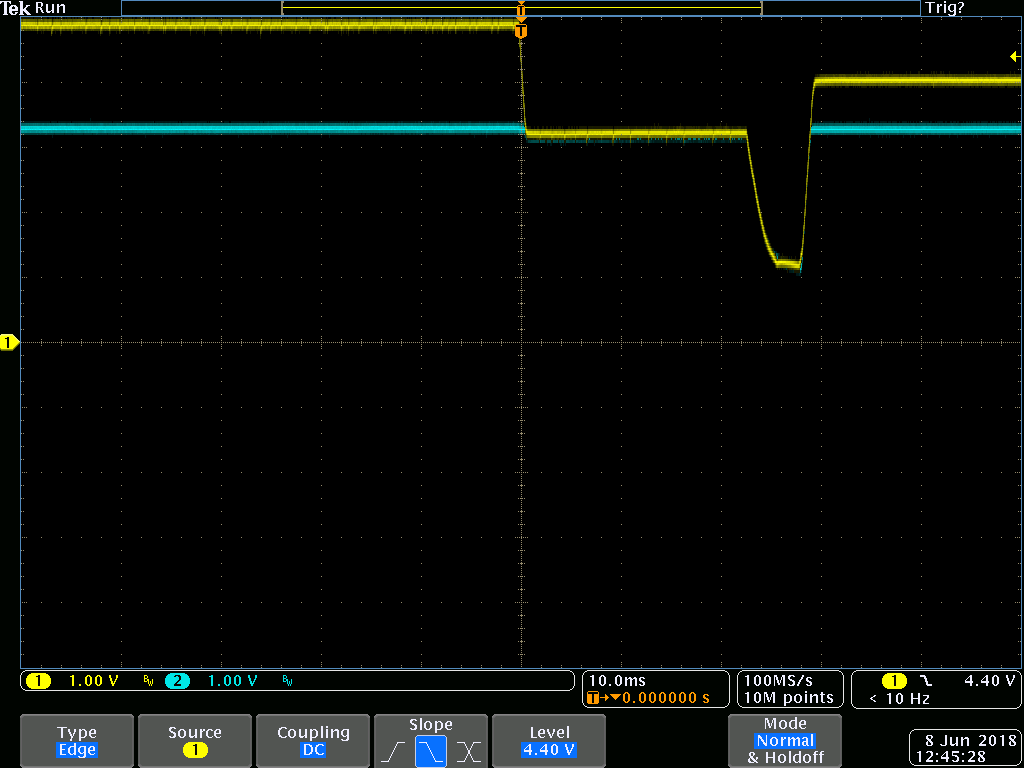Other Parts Discussed in Thread: BQ24075, , , TPS22912C
We are using TPS2113DRB unit as a power mux. EN# is tied to VSS, ILIM is tied to VSS with 400 Ohms.
IN1 and VSNS are tied to USB_5V supply. IN2 is tied to a battery charger's output: BATT_LOAD, it is from the battery charger BQ24075 with its SYSOFF pin tied to VSS .
USB_5V is also input power to the BQ24075. This allows charger to supply the power either from USB_5V input or from the battery (2500 mAh, 4.2V) without interruption
to the pin IN2 of TPS2113
When battery is fully charged and USB_5V is disconnected (taken away) we expected no interruption of power at the TPS2113's output pin,
but the system reboots when USB_5V is disconnected. greatly appreciate if you could please tell what could be the reason for this?
Battery charger's output (BATT_LOAD) - which is IN2 to the power mux should be providing the battery power but TPS2113's output is getting interrupted. There is no issue with the battery itself, it continues to power the system but a glitch in the power mux appears when USB-5V is disconnected, what we can do to correct this situation and get uninterrupted power from TPS2113? Thanks,
- Andy



